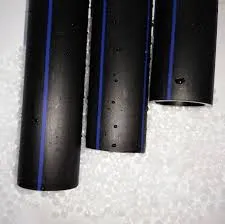Aug . 18, 2024 02:23 Back to list
Exploring the Benefits and Applications of PVC-M Pipe in Modern Plumbing Systems
Understanding PVC-M Pipes A Reliable Choice for Modern Infrastructure
Polyvinyl chloride (PVC) is a widely used synthetic plastic polymer that has revolutionized various industries, especially construction and plumbing. Among the different variants of PVC, PVC-M (Modified Polyvinyl Chloride) pipes have gained significant traction in recent years due to their enhanced properties and versatility. In this article, we will explore what PVC-M pipes are, their benefits, applications, and the reasons behind their growing popularity in modern infrastructure.
What are PVC-M Pipes?
PVC-M pipes are an advanced form of traditional PVC pipes, modified through the addition of specific additives during manufacturing to improve their mechanical properties. The goal of this modification is to enhance their impact resistance, ductility, and overall strength without compromising the lightweight nature of PVC. This improved resilience makes PVC-M pipes particularly suitable for high-pressure applications and adverse environmental conditions.
Benefits of PVC-M Pipes
1. Durability One of the most significant advantages of PVC-M pipes is their durability. They resist abrasion, corrosion, and chemical exposure, making them ideal for a wide range of environments, including industrial settings and wastewater management.
2. Lightweight PVC-M pipes are much lighter than metal or concrete alternatives, which simplifies handling and installation. This lightweight nature leads to reduced transportation costs and labor time, making them a cost-effective option for many projects.
3. Flexibility The modification in PVC-M allows for greater flexibility compared to standard PVC pipes. This feature enables the pipes to better withstand ground movement and shifting, reducing the risk of cracking or failure.
4. Improved Pressure Ratings PVC-M pipes have higher pressure ratings than standard PVC, making them suitable for applications requiring high pressure, such as water supply systems, irrigation, and industrial uses.
pvc-m pipe

5. Environmentally Friendly PVC-M is recyclable, and its production has a lower environmental impact compared to other materials like metal. Additionally, PVC-M pipes can help in energy conservation due to their insulation properties, reducing energy loss in piping systems.
Applications of PVC-M Pipes
PVC-M pipes have a wide array of applications across different sectors. They are commonly used in
- Water Supply Systems Due to their pressure tolerance and durability, PVC-M pipes are ideal for drinking water supply networks, ensuring safe and reliable transportation of water.
- Irrigation The agricultural sector benefits from PVC-M pipes for efficient irrigation systems, allowing farmers to conserve water while maximizing crop yield.
- Sewage and Drainage With their resistance to chemicals and great strength, PVC-M pipes are frequently employed in sewage and drainage systems, ensuring effective waste management.
- Industrial Applications Many industries utilize PVC-M pipes for transporting solvents, chemicals, and other substances safely, taking advantage of their non-corrosive properties.
Conclusion
In conclusion, PVC-M pipes are a modern and reliable solution for various infrastructure needs. Their enhanced durability, flexibility, and resistance to pressure make them superior to traditional choices in many applications. As construction and engineering continue to evolve toward more sustainable and efficient practices, the role of PVC-M pipes is likely to grow. Whether it’s for water supply, irrigation, or industrial applications, PVC-M pipes are becoming a preferred choice for engineers and builders alike, signaling a shift towards smarter infrastructural solutions.
-
High-Quality PPR Pipes and Fittings Durable ERA PPR & PVC PPR Solutions
NewsJul.08,2025
-
Black HDPE Cutting Board - Durable, Non-Porous & Food Safe HDPE Plastic Cutting Board
NewsJul.08,2025
-
High-Quality CPVC Panel Durable HDPE & PVC Panels Supplier
NewsJul.08,2025
-
Double PE Welding Rod Supplier - High Strength, Durable & Versatile Welding Solutions
NewsJul.07,2025
-
High-Quality PVC-O Pipe Supplier Durable 75mm PVC Pipe & Connections Leading PVC Pipe Company
NewsJul.07,2025
-
HDPE Drainage Pipe Supplier – Durable & Corrosion-Resistant Solutions
NewsJul.06,2025

